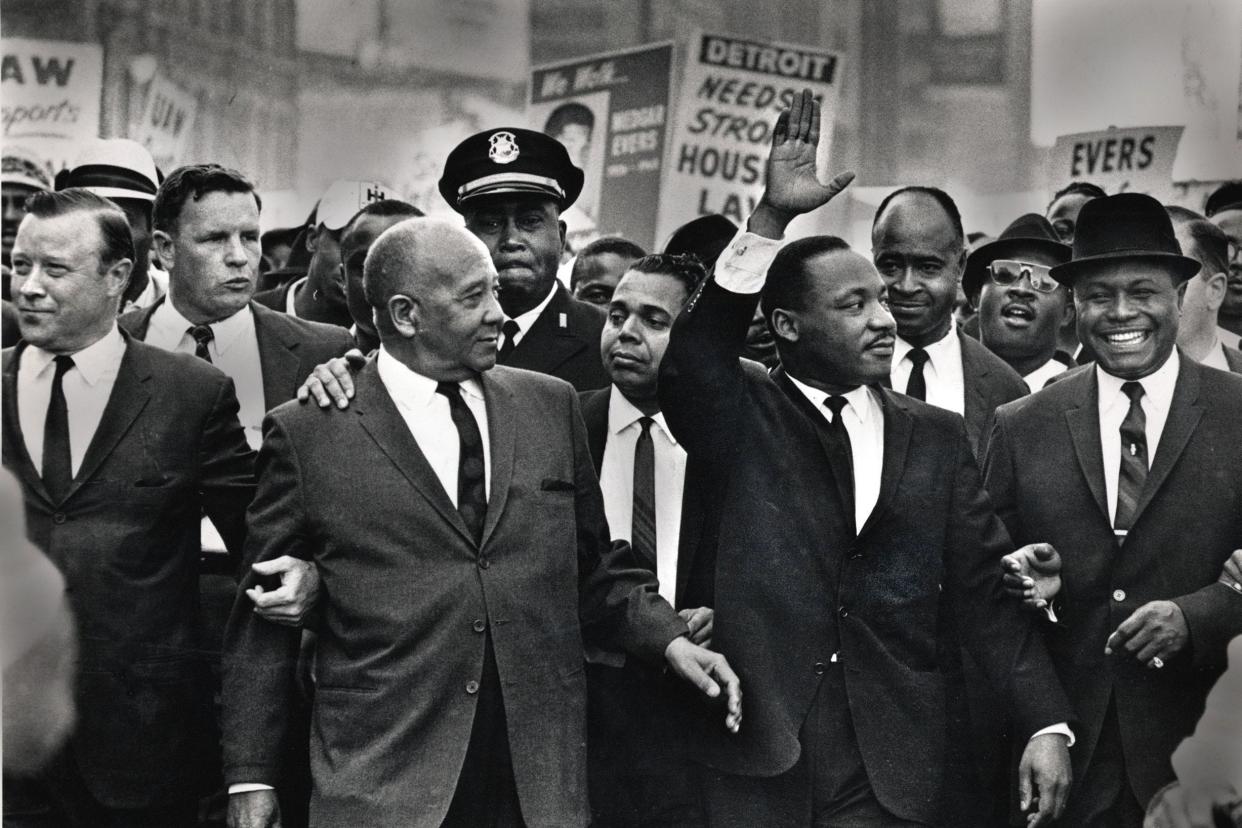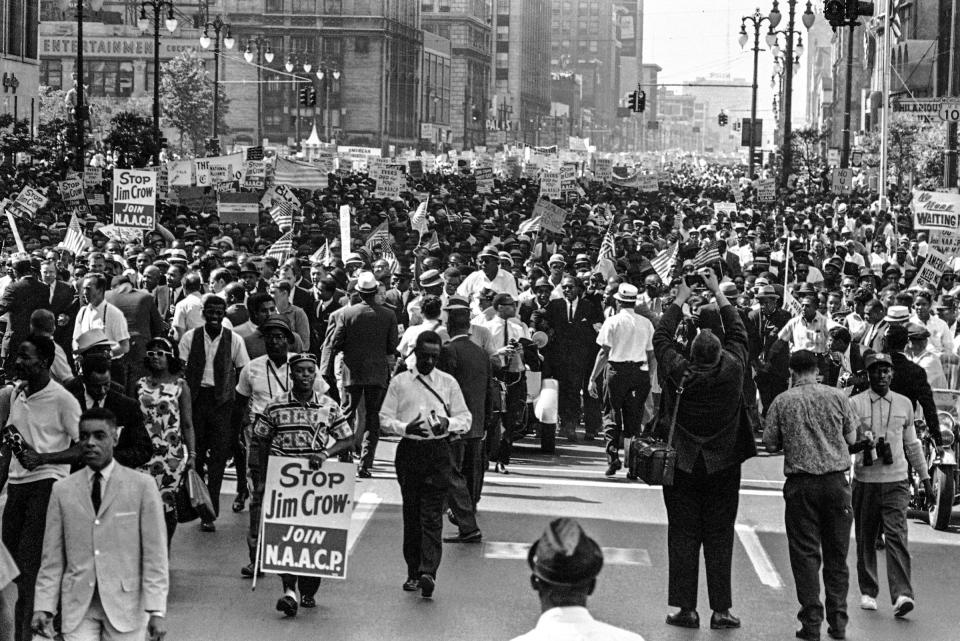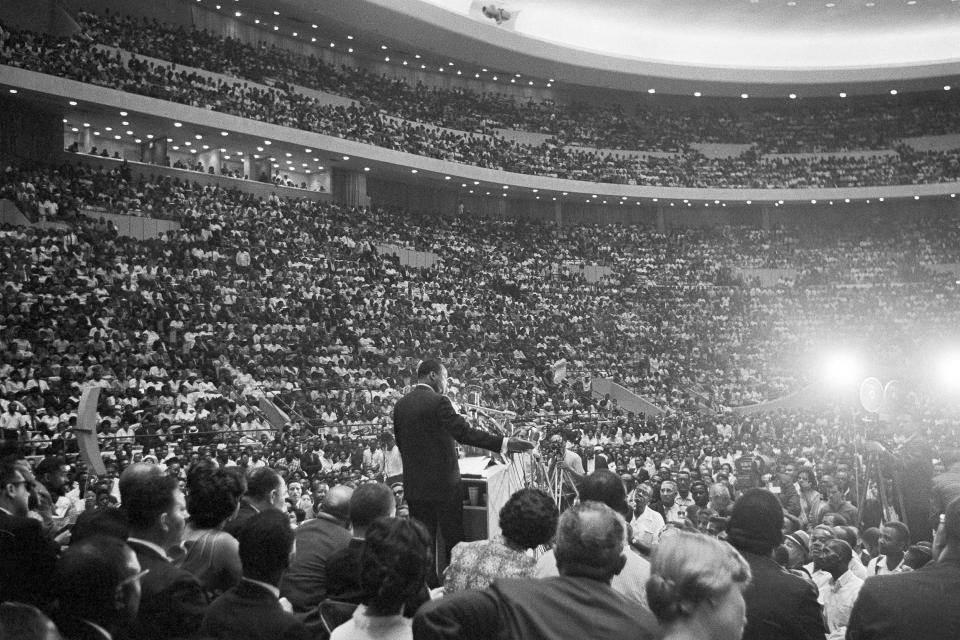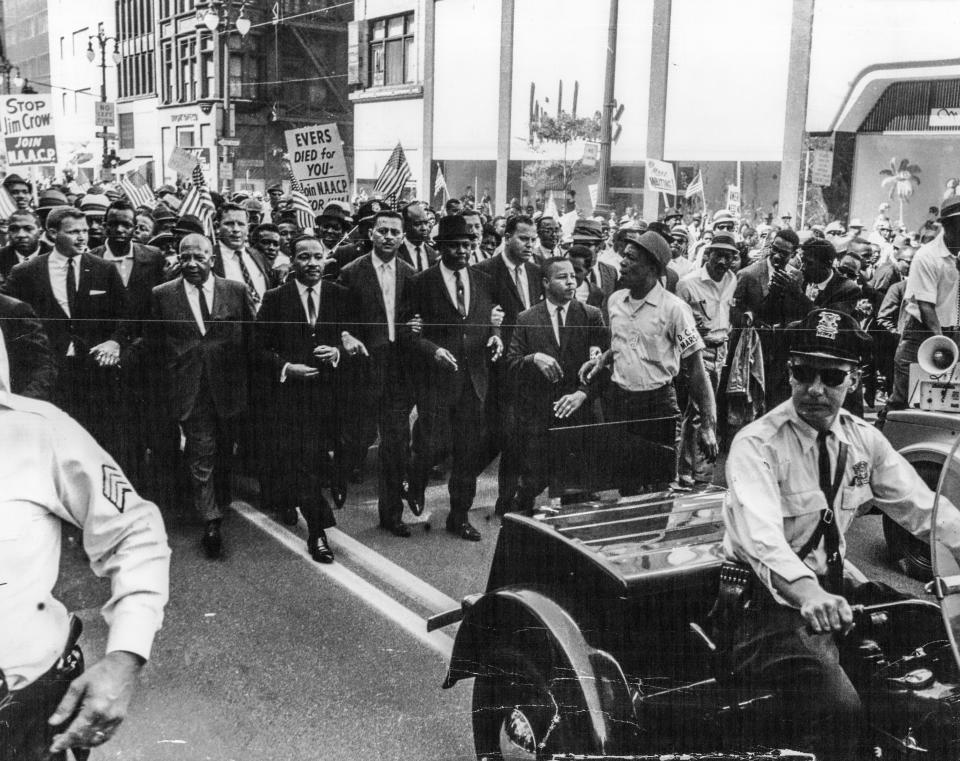Flashback: 60 years ago, the March to Freedom filled downtown Detroit

- Oops!Something went wrong.Please try again later.
June 23, 1963, was a warm, sunny day in Detroit. Tens of thousands of people gathered on Woodward north of Grand Circus Park and prepared to make history in the famous March to Freedom. At the time, it was the largest civil rights demonstration in U.S. history.
There were so many marchers that they heaved down Woodward toward the Detroit River in great surges that could not be contained. They began marching early, led by the Detroit Police band. The day’s star, Martin Luther King Jr., and lines of dignitaries squeezed in after a number of people had already started. The crowd was estimated at 125,000, but many observers put the number as high as 200,000.

The atmosphere was festive. Marchers sang “We Shall Overcome,” the “Battle Hymn of the Republic” and “We Shall Not Be Moved.” King walked arm in arm with the Rev. C.L. Franklin, his longtime friend who was one of the march organizers. Despite the talk of unity, the crowd was overwhelmingly Black; most reports put the number of whites at about 10%.
As the march reached the river, some 20,000 people made it inside Cobo Arena to hear King deliver a version of the “I Have a Dream" speech he would make famous two months later at the giant march in Washington D.C.

“I have a dream this afternoon that one day, right here in Detroit, Negroes will be able to buy a house or rent a house anywhere that their money will carry them, and they will be able to get a job,” King told the cheering crowd.
The march took place at the height of the Civil Rights Movement, just weeks after Alabama police attacked marchers with snarling canines and blasts of water. When King arrived in Detroit, Police Commissioner George Edwards assured him that “you’ll see no dogs or fire hoses here.”
— Bill McGraw, Detrot Free Press Flashback editor

The NAACP Detroit Branch will commemorate the 60th anniversary of the historic March to Freedom in Detroit with a series of events this week.
Freedom Walk Summit: A daylong summit will feature discussions on a range of issues including civil rights and voting rights. Author and entertainer Ayanna Gregory, professor Kimberlé Crehnshaw and Michael Eric Dyson are among the summit's guest presenters. The summit is scheduled to take place from 9:30 a.m. to 4 p.m. on Thursday at Wayne County Community College District Northwest Campus at the Denise Wellons-Glover Welcome Center. Register for the event at bit.ly/DetroitNAACPFreedomSummit.
Statue unveiling: A permanent statue of Martin Luther King Jr. will be unveiled at Hart Plaza at 10 a.m. Friday,
60th Commemorative Freedom Walk and Rally: The roughly 1.7-mile walk will begin at 10 a.m. Saturday at Woodward Avenue and Martin Luther King Jr. Boulevard and a rally is scheduled for noon at Hart Plaza. Register at bit.ly/CommemorativeFreedomWalk.
68th Annual Fight for Freedom Fund Dinner: U.S. Sen. Raphael Warnock will be the keynote speaker and among the seven award recipients at the dinner. 5 p.m. Sunday, June 25, Huntington Place. Purchase tickets at bit.ly/FightforFreedomFundDinner.
This article originally appeared on Detroit Free Press: 60 years ago, the March to Freedom filled downtown Detroit

